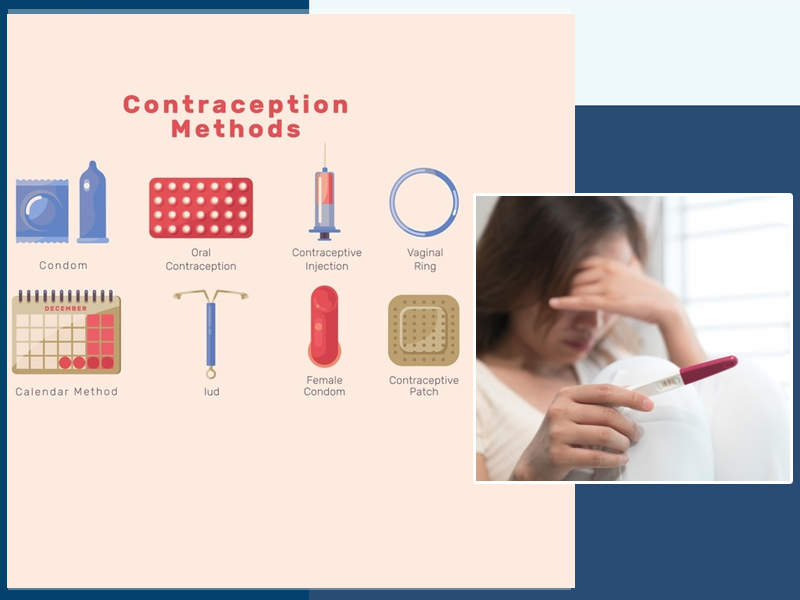
Many effective contraceptive methods for preventing pregnancy are available but they are linked with many myths too. For example, how the use of contraceptives be beneficial for birth control, and at the same time, there is a myth of contraceptives not being very effective. There is a general myth that long-term use of contraception can make you infertile. Let’s discuss some common myths and the underlying facts as told by Dr. Apurva Satish Amarnath, Fertility Consultant, Nova IVF Fertility, Bangalore.
Table of Content:-
Contraceptives Myths and Facts
If you are someone who is afraid of using contraceptives to delay pregnancy, you must read this article. You might be fearing about consequences that do not exist in real. Only a fertility expert can tell best about usefulness of contraception. Here are some of the common myths about birth control methods.
Myth 1. Taking birth control pills can cause difficulty in pregnancy later
Fact: It is believed that it takes an average of 1-3 months for a woman's fertility to return after taking birth control pills for a prolonged time. This time period can be different for the different types of contraception used. When women stopped using contraceptives, they reported short-term delays in regaining their fertility.

Myth 2: Birth control can cause infertility
Fact: There is no evidence that hormonal contraceptives have a long-term effect on fertility. Infertility is very common, especially as people get older. Approximately 12–13 percent of couples have difficulty conceiving. Fertility issues following birth control do not imply that birth control causes infertility. Infertility is not caused by the combined oral contraceptive pills (COC). In fact, one of the non-contraceptive benefits of the pill is that it protects against pelvic inflammatory disease, endometriosis, and ectopic pregnancy.
Hormonal contraception works by interrupting the ovulation cycle, which is necessary for natural conception. All synthetic hormones like estrogen and/or progesterone work to prevent the body from ovulating by suppressing the regular hormone cycle.

Also Read: 5 Types of Contraceptives You Should Know About
Benefits of birth control for women
The following are some of the health benefits of the pill for certain women:
- Helps to have regular periods
- Reduce ovulation pain
- Reduce menstruation cramps
- Reduce the risk of anemia
- Minimizing the premenstrual dysphoric disorder
- Reduce excess hair on face and body
- May help protect against ovarian cysts
- Help protect against Inflammation of the pelvis
- Helps to reduce migraines caused by menstruation
Myth 3: Birth control can also help protect against sexually transmitted diseases or STDs
Condoms are effective at preventing STDs when used correctly but this is not in the case of oral contraceptive pills. Although STIs can be transmitted by direct sexual contact or body fluid exchange, employing a barrier technology (such as a condom, internal condom, or dental dam) can help to lower the risk of transmission.
The use of external or internal condoms in a consistent and accurate manner has been linked to a significant reduction in the acquisition of STIs. When compared to sex without a condom, wearing a condom reduces your risk of contracting HIV by up to 80%.

Also Read: Sexually Active Women Can Get Bacterial Vaginosis infection
Conclusion
When it comes to birth control and fertility, there may be a lot of ambiguity. Contraceptives, on the other hand, do not result in infertility. It's a reliable source no matter what approach you use or how long you've been using it. They are, however, only intended to prevent pregnancy by temporarily delaying your fertility. Your fertility levels will return to normal once you stop taking them.
Infertility may be diagnosed after 6 months of intercourse without contraception for the person aged 35 or more. Because any sex during this period would be protected by your method of contraception, being unable to become pregnant while on birth control would not be considered infertility. Although fertility may be delayed after birth control, plus once the chemicals are removed from the body, normal levels should return within a few months at most.
Images credits- freepik
Also watch this video
How we keep this article up to date:
We work with experts and keep a close eye on the latest in health and wellness. Whenever there is a new research or helpful information, we update our articles with accurate and useful advice.
Current Version